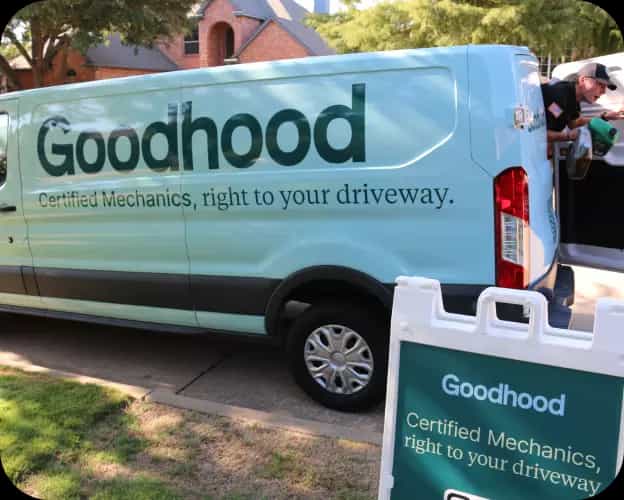Alternator Replacement At Your Desired Location
Mechanic Comes To You
24 months | 24,000 miles Warranty
Online Booking
Get up to 3 free oil changes with our membership
What You Get with a Mobile Alternator
What is an Alternator and Why Is It Important?
Every time you use your vehicle's electrical systems, your battery loses power. This is where your car’s alternator comes in. Located in the engine compartment, an alternator converts mechanical energy into electrical energy, recharging your battery and replenishing any lost battery power.
If your alternator breaks down, your car will only run off the battery power stored. Therefore, once your battery loses power, your vehicle will come to a complete stop and not restart. You will usually be altered to a broken-down alternator by your battery light and/or a low volt gauge reading.
An alternator is a vital vehicle component. In fact, bad alternators are the #1 cause of a dead car battery. Therefore, if damaged, it needs replacing or repair ASAP.
What Do We Offer?
Our mobile mechanics come to your home or office to replace your damaged alternator.
They change your battery’s alternator, perform a complimentary vehicle inspection, & then schedule your next replacement - all from the comfort of your own home.
How We Do It?
Our ASE-Certified mobile mechanics are based throughout Michigan and Texas.
Once you get an alternator repair quote from us, we will send a qualified battery technician for your vehicle based on the time & day you selected. You get a fixed upfront quote, book an appointment & get your alternator replaced outside your home or office - it really is that simple!
What We Recommend
Alternators are an integral part of your car battery. You need to regularly check and - on occasion - replace your battery and its components. This will help ensure the long-term health of your vehicle and the safety of yourself and your passengers. For our members, we offer automated battery inspection reminders depending on your vehicle manufacturer’s service intervals.
With a Goodhood membership, you get a 10% discount on all your battery services along with free oil changes.
How to Tell If You Have a Failing Alternator?
Here are some common symptoms that can indicate your vehicle has a failed alternator:
A dead battery or a battery that won't hold a charge
Your dash's battery light is on
A low volt gauge reading on your battery
Dim lights
Electrical components are failing
Trouble starting your car
Engine light is on
Ignition problems
Odd noises
How to book an alternator replacement with us?
Booking an alternator replacement with Goodhood is extremely simple. Just follow these 3 easy steps.
Request a fixed upfront quote
Book an appointment
Pay after your oil change
Goodhood
Club
Join the club & get free at-home
maintenance services. Our members
have one less thing to worry about.
Goodhood Membership
Save 20%
6 months
Yearly
$190
/ year
Benefits
Free Oil Changes
10% off All Repairs with a Price Match Guarantee
Dedicated Service Advisor & Technician
Carlos
422 reviews
Background checked
Passed Goodhood's rigorous test
The car dr.!!!
- Car
2012 Honda Accord
Alternator Servicing Near You
More About Us
FAQs
